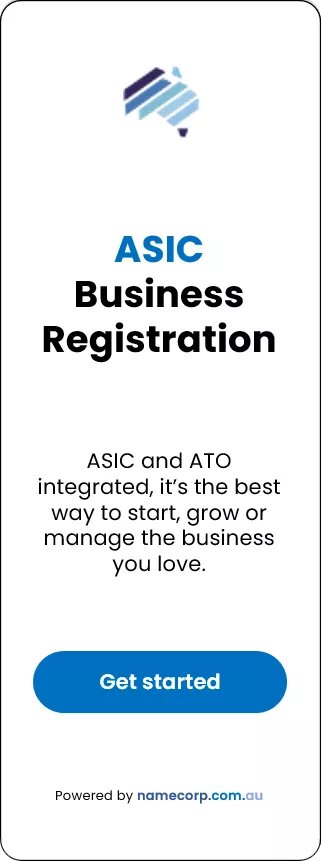Determining your business's value is a crucial step whether you're seeking funding, drawing in investors, or preparing to sell. Consider this guide with recommended actions to navigate the valuation process smoothly.
Gathering Business Information
Assemble all necessary business details to accurately assess your business's value. Should you require assistance in document preparation and professional services are not within your budget, seek support from acquaintances or relatives who have expertise in bookkeeping or business management.
For those in the process of selling, bear in mind that prospective purchasers might opt for an independent valuation of your business. Therefore, maintaining well-organized and current business records is advantageous.
To help get you started, you’ll need the following:
Financial and Asset Overview:
Please provide financial records from the past five years, including cash flow, debt, revenue, and profit/loss statements. Inventory physical assets like machinery, property, equipment, and inventory. Also, list intangible assets, including business goodwill and copyrighted intellectual property.
Legal Compliance Documentation:
Submit legal agreements, including leases and insurance policies. Include registration documents like business name certificates, ABN, licenses, and permits that verify compliance with governmental regulations.
Business Profile and Strategic Planning:
Detail market dynamics, including competitor analysis and your business's market position. Provide sales data, projections, and a comprehensive history of the business, including significant dates, ownership, and location shifts. Document operational procedures for marketing, staffing, and customer service. Outline strategic plans for marketing, crisis management, and expansion. Specify operational hours and the status of business premises ownership.
Human Resources, Supply Chain, and Clientele Data:
Detail employee roles, qualifications, employment history, performance evaluations, and compensation. For suppliers, provide contract terms and pricing details. For customers, include demographics, profiles, and marketing engagement strategies.
Consideration for Professional Valuation Guidance
Should your budget allow, it's worth contemplating the engagement of professional services to ascertain your business's worth. This could be through an accountant, a business consultant, or a broker.
Such experts can assist in:
- Examining your financials
- Identifying industry market trends
- Assessing the goodwill attached to your business
- Projecting future earnings
- Determining an overall valuation for your enterprise.
Additionally, they may have in their network potential buyers, potentially bypassing the expenses and efforts associated with marketing your business.
Choosing your preferred Valuation Method
Selecting a valuation approach is crucial, yet there's no universal method that fits all. A blend of different techniques might be necessary to arrive at the final valuation. Negotiations with potential buyers or investors may influence the choice of valuation method.
Engaging a valuation expert can provide clarity on the most suitable method for your enterprise. Commonly utilized valuation strategies encompass:
- Evaluating current market prices
- Calculating return on investment (ROI)
- Assessing the value of business assets
- Estimating the cost to establish a similar business from the ground up
- Projecting future earnings
The industry norms and the prevailing market rates for comparable businesses heavily influence the valuation. Each industry often has bespoke valuation standards and formulas, making industry-specific knowledge invaluable.
For sales purposes, the ROI method is particularly useful, as it derives the business's worth from its net profit. This can be done by:
- Setting an ROI to determine a desired selling price, or
- Establishing a selling price to achieve a predetermined ROI.
ROI = (net annual profit/selling price) x 100
For example, you have a selling price of $200,000 in mind, but want to test your ROI based on that price. You calculate that your business' net profit was $50,000 for the past year.
Use the below sample formula to work out your ROI:
ROI = (net annual profit/selling price) x 100
For example, you have a selling price of $200,000 in mind, but want to test your ROI based on that price. You calculate that your business' net profit was $50,000 for the past year.
To work out the ROI, you use the formula:
ROI = (50,000/200,000) x 100
In this case, your ROI is 25%.
If you have an ROI in mind, you can use it to calculate the price for your business:
Value (selling price) = (net annual profit/ROI) x 100
Say you wanted a ROI of at least 50% for the sale of your business. If your business' net profit for the past year was $100,000, you could work out the minimum selling price you should set.
Selling price = (100,000/50) x 100
In this case, to achieve a ROI of at least 50%, you'll need to sell your business for at least $200,000.
Using your business assets to calculate net worth
To determine your business's net worth, it's essential to account for all assets, both tangible and intangible. Tangible assets include any physical items like machinery, vehicles, and real estate. On the other hand, intangible assets, though not physical, hold significant value, such as patents, trademarks, and the company's reputation or goodwill.
Once you've established the combined value of these assets, this figure can serve as a benchmark for setting a potential sale price for your business.
Given the complexity of valuing assets, especially intangible ones, seeking guidance from a financial advisor or accountant is highly recommended to ensure accuracy and comprehensiveness.
Calculating Business Goodwill
Assessing the value of business goodwill involves various intangible factors, such as customer loyalty, brand recognition, employee efficiency, client databases, and the overall reputation and operational methodologies of the company.
The process of determining goodwill is intricate, with diverse outcomes emerging from different valuation techniques. These methods can assist in establishing a prospective price bracket for the goodwill of a business. Ultimately, however, the true worth of goodwill is determined by what a buyer or the market is prepared to offer.
Given the complexity of calculating goodwill, seeking the expertise of a professional, like an accountant, is advisable for an accurate evaluation.
Don’t forget depreciation, this must be accounted for
When assessing the value of your business assets, it's essential to consider depreciation. This process reflects the reduction in value of your assets as they age. For instance, a computer bought for $1000 three years ago would not retain its original value today. It's crucial to adjust the asset's value on your books to reflect this change.
Should you have any doubts about calculating asset depreciation, consulting with your accountant is advisable for accurate financial reporting.
Identify the Initial Cost for Starting Your Business
Assessing the initial investment required to establish your business from the ground up is a crucial step in understanding its value. This involves estimating the total cost to construct a comparable enterprise within your sector, given the current market conditions.
The calculation should encompass all expenses associated with the inception of the business, which includes:
- Procurement of inventory
- Acquisition of machinery and instruments
- Securing necessary authorizations and approvals
- Staff recruitment, development, and employment
- Product development
- Advertising and outreach activities
- Property acquisition or rental agreements
- Online infrastructure development.
Estimate Future Business Profits
Projecting your business's future profitability is crucial for attracting investors or securing a sale. The potential for future earnings is often the most compelling aspect of a business's value to prospective buyers or financiers. Demonstrating a strong likelihood of profitability through detailed financial projections can enhance your chances of obtaining funding or achieving a favorable sale price.
To forecast future profits, analyze historical financial data and identify growth trends within your business. Additionally, benchmarking against industry peers can provide context for your business's performance and market trajectory. Incorporate these insights into your financial discussions to inform potential investors of the expected financial returns and to strengthen your position in financial negotiations or sales discussions.



